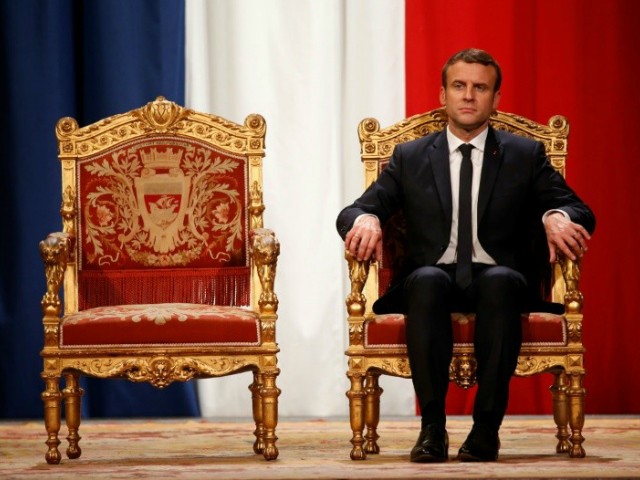A missing word from President Macron's letter
It wasn’t hard to be riled by President Macron’s portentous letter to the citizens of Europe this week. I choked no sooner than reaching his second sentence, which asserted that May’s elections for the European Parliament would be “decisive for the future of our continent”. Really? Two sentences later we were told “never has Europe been in such danger”. Oh, please. Later he proposes a “European Agency for the Protection of Democracies”. Even accounting for the florid French style, this was beyond parody.
I cannot better Henry Newman’s wonderful “Cher President Macron” riposte to the Elysee Bull. Still, I was struck that, in proposing a “Conference for Europe” to chart the EU’s future, the President said that it was “better to have a Europe that advances, sometimes at different speeds” than a static Europe, and that leaders should be “open even to amending the EU treaties”. Perhaps we’ve heard both suggestions before, and by different speeds Macron almost certainly doesn’t contemplate one gear being reverse. His defence against nationalism is more Europe, whether the destination is reached in the slow or fast lane.
The irony of the leader of a major EU Member State now contemplating treaty amendment is that David Cameron founded his EU reform proposals, set out in his Bloomberg speech, on the expectation that treaty changes would be required to strengthen the euro, only for the EU to decide they weren’t necessary. His renegotiation was torpedoed not just by the political constraints of EU orthodoxy but by the legal limits: changes could not be so significant that they would mean amending the treaties, with the potentially tricky referendums across Europe that would result. The rest is history.
It’s fashionable to blame Cameron not just for losing the referendum but for calling it in the first place. The loudest condemnation comes from blame-transferring Labour MPs who voted for a referendum and to trigger Article 50. The commonplace assertion is that the referendum was called only for reasons of party management. This ignores a few inconvenient facts: that Tony Blair proposed a referendum on the EU constitution, that Gordon Brown reneged on it, and that the first political party which called for an in-out referendum was the Liberal Democrats under Nick Clegg’s leadership. And does anyone think that Jeremy Corbyn’s support for a second referendum is about the national interest?
A re-read of Cameron’s Bloomberg speech shows that much of his analysis of the EU’s challenges has stood the test of time. “More of the same”, he said, “will just produce more of the same - less competitiveness, less growth, fewer jobs.” The latest OECD growth forecasts for the Eurozone are grim. Funnily enough, in his clarion call for “freedom, protection and progress”, Macron didn’t mention that.

